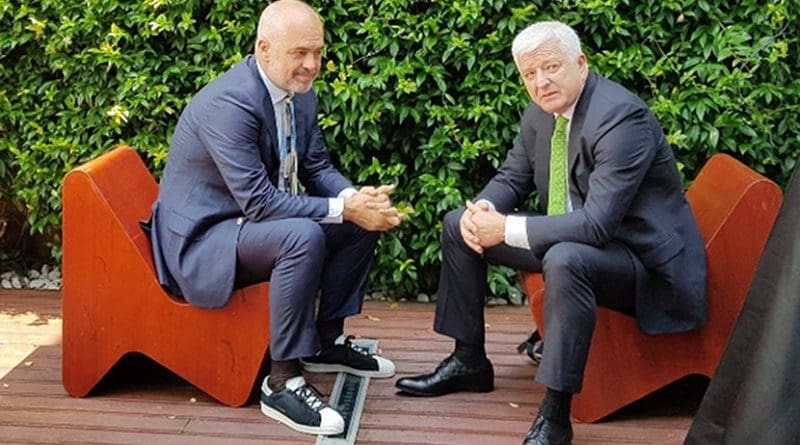Montenegro And Albania Vow To Confront Challenges Together
By Dusica Tomovic
The governments of Montenegro and Albania held an unprecedented joint cabinet meeting on Tuesday, vowing to work together to confront the challenges of migration, refugees, minorities and security.
The meeting was held in the northern Albanian town of Shkodra, on the path of an emerging route for a small number of migrants and refugees from the Middle East and Africa heading through Albania and Montenegro into European Union member Croatia.
“We will work together to preserve stability,” said Montenegrin Prime Minister Dusko Markovic. “There is no talk of walls and barbed wire. Our countries are safe.”
Though still a tiny fraction of the numbers that coursed across the Balkans in 2015 and are arriving by boat to Italy, Albania registered more than 2,300 migrants and refugees in the first five months of this year, more than double the number for the whole of 2017.
The two cabinets signed a joint declaration and 12 agreements concerning mutual assistance in emergency situations, on the opening of a joint border crossing, Ckla-Zogaj, for international cargo and passenger traffic and on cooperation in cross-border operations in policing airspace.
Each nation hosts a minority of the other, what Albanian Prime Minister Edi Rama called an “extraordinary bridge of co-existence.”
Rama praised the attitude of the Montenegrin authorities towards Montenegro’s ethnic Albanian minority and said that in adopting a Law on Minorities Albania had afforded its own Montenegrin minority the status it deserved.
“It’s not usual that things are positive in our region, but here they are,” Rama said.
Business representative from both countries were expected to discuss cooperation on trade, tourism, energy, transport, agriculture, IT and wood-processing.

